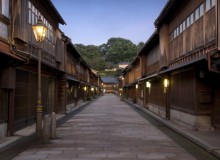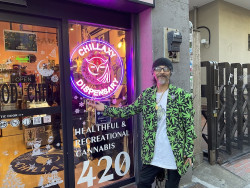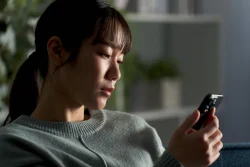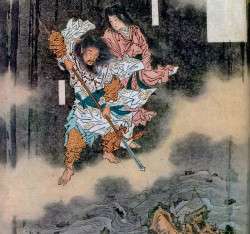
Originally published on metropolis.co.jp on March 2013


The fifth Okinawa Movie Festival kicked off its week of events on Saturday in a Emerald Castle-like conference center just outside the capital Naha. The entertaining red-carpet process saw various Japanese comics appear to varying degrees of excitement among the amassed crowd of mostly teenagers, and a bewildering array of costumed characters advertising sponsors. In fact, the ratio of characters to real people was about even. Some were in bloated unwieldy suits and had to be led shuffling along like wounded aliens paraded in front of their baying captors. When the sub-tropical sun hid behind cloud cover everyone felt more comfortable.
The big stars were Atsuko Maeda of former AKB fame (aka Acchan; pictured), a bunch of girls from Osaka offshoot NMB48, Hollywood director and festival judge Joel Schumacher (Batman Forever; The Lost Boys)—with prolific anime star Crayon Shin-chan a big hit among the fictional selection.
Schumacher, attendee of many a fest in his time, told reporters the festival was one of the most community-minded he’d witnessed. The conference center buzzes with a community vibe; all events are completely free, including movies on the big screens. A market place of stalls and food court meant the area swarmed with locals during the whole weekend—couples, families, groups of friends. It helped that the cloudy weather dissuaded people from the beach.
The festival was created by Yoshimoto, a massive management agency owned by the billion-dollar Koiraku pachinko giant. One source close to the top rung estimated the festival’s cost at around US$9 million, with $1 million of that used to bring the world’s largest outdoor portable screen from Locarno in Switzerland. The screen was enormous, of quite incredible resolution, and could flip over in case of rain. But a pricy choice nonetheless. Funds also came from the Okinawa Prefectural government, keen to enhance Naha’s role as a cultural hub.
For centuries the Ryukyu Kingdom ruled Okinawa, managing to foster trade with its powerful neighbors of Japan and China, as well as with Taiwan and Korea, while maintaining its independence. One of the movie fest’s aims is to foster cinematic trade between its Asian neigbors. To that end there is a Content Bazaar where producers, sales agents, and distributors from all over the region can meet to discuss business.
The program boasted a couple of big international hits, most notably Beasts of the Southern Wild, and the Asia premiere of Ring director Hideo Nakata’s new offering The Complex (Kuroyuri Danchi), with aformentioned AKB graduate Acchan (trailer here).
But perhaps most interestingly, the fifth festival has a new feature, the Creative Factory, headed up by superproducer Kazuyoshi Okuyama. Okuyama told Metropolis that this program—which awards applicants in the creative arts with support in producing their project over the next year—is for him the main target of the festival. “Nurturing new talent is something other festivals talk about,” he said, “but we are trying to make that a reality.”
Okuyama talked about how the breakdown of the studio system in Japan has led to stagnation. New talents are unable to get into the industry unless they go through the massive companies that control it. Is it not possible to change the system? “I tried it in the past but I failed,” Okuyama said. “Now I’ve realized you have to change the system from inside.” He laughed ruefully. “Maybe I’ve just got older.”
Okuyama hopes that the winners of this year’s Creative Factory can achieve domestic success and distribution deals in the future, making the Okinawa Movie Festival’s name as a crucible for new talent. It hasn’t been done yet, he admitted. But with the festival getting bigger every year, it seems to be going in the right direction.







